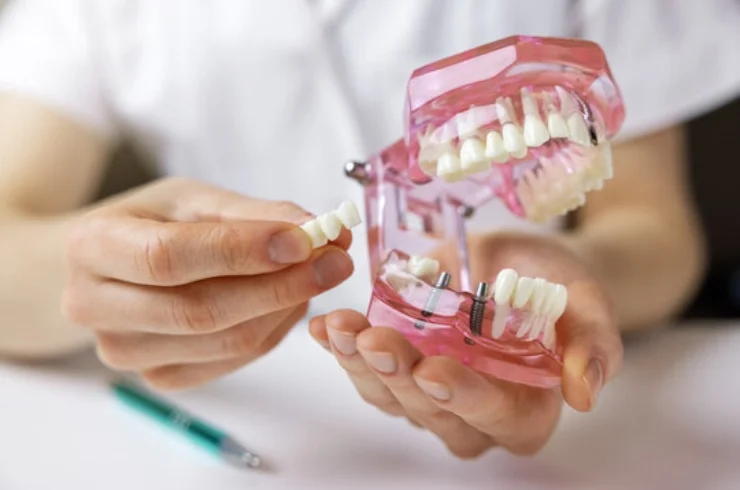Dental Crowns & Bridges

Dental Crowns & Bridges
Dental crowns and bridges are fixed prosthetic devices used to restore damaged, decayed, or missing teeth. They are commonly recommended by dentists to improve the strength, functionality, and appearance of your teeth and smile.
What Are Dental Crowns?
A dental crown is a tooth-shaped cap that is placed over a damaged or weakened tooth to restore its shape, size, strength, and appearance. Crowns are typically made from materials such as porcelain, ceramic, metal, or a combination of these.
When Are Crowns Needed?
To protect a weak or cracked tooth
To restore a broken or worn-down tooth
To cover and support a tooth with a large filling
To hold a dental bridge in place
To cover a dental implant
For cosmetic improvement
Crowns fully encase the visible portion of the tooth above the gum line, offering long-term durability and protection.
What Are Dental Bridges?
A dental bridge is used to replace one or more missing teeth. It consists of one or more artificial teeth (pontics) anchored in place by crowns attached to the adjacent natural teeth or implants.
Types of Dental Bridges:
Traditional bridge – supported by crowns on both sides
Cantilever bridge – supported on only one side
Maryland bridge – uses a metal or porcelain framework bonded to the back of adjacent teeth
Implant-supported bridge – secured by dental implants rather than natural teeth
Procedure for Crowns & Bridges
The process typically involves two visits:
First Visit – The tooth is prepared, impressions are taken, and a temporary crown or bridge is placed.
Second Visit – The permanent crown or bridge is fitted and cemented after proper adjustments.
Benefits of Crowns and Bridges
Restore chewing and speaking function
Maintain facial structure
Prevent remaining teeth from shifting
Improve smile aesthetics and confidence
Provide long-lasting results with proper care
Care and Maintenance
Good oral hygiene is essential to prolong the life of crowns and bridges. Regular brushing, flossing, and dental checkups help prevent decay around the prosthetic and maintain gum health.
Dental crowns and bridges are reliable, durable solutions for restoring damaged or missing teeth. If you’re facing tooth loss or damage, consult your dentist to see if these restorative options are right for you.